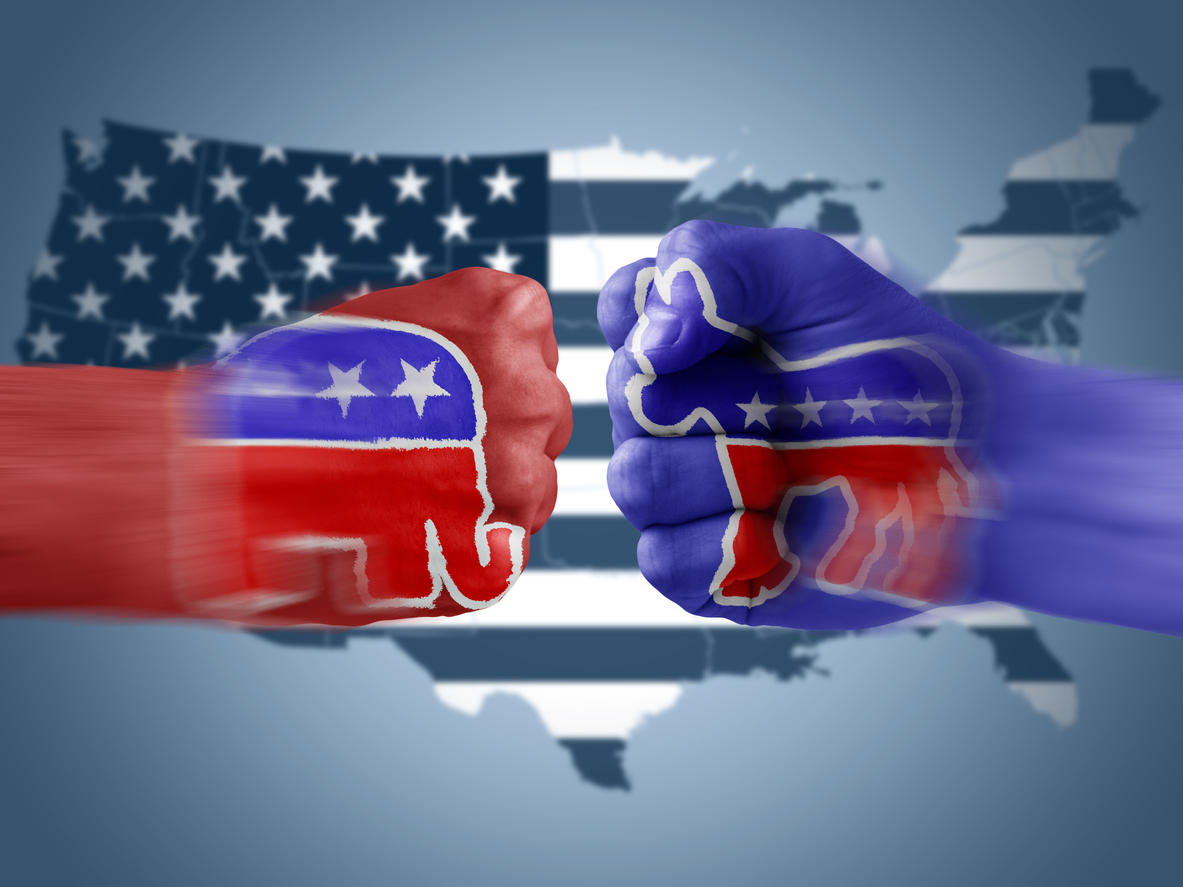Republican lawmakers are about to propose a federal cannabis reform bill, providing a more conservative alternative to the two Democratic-led measures currently being debated in Congress.
First-term Rep. Nancy Mace (R-SC) is spearheading a Republican effort to federally decriminalize cannabis and establish a tax on all state-level retail sales, according to Marijuana Moment, who obtained a draft copy of her bill. This 116-page draft is currently being circulated to industry stakeholders for feedback, but Mace hopes to introduce the bill into the House of Representatives before the end of the month.
The new bill, officially titled the States Reform Act, would federally deschedule marijuana and direct federal agencies to regulate it similar to the way that alcohol is currently regulated. All state adult-use cannabis sales would be hit with an additional 3.75 percent federal excise tax, and this revenue would be divided between law enforcement, community reentry grant programs, and assistance for small businesses applying for weed industry licenses.
In order to help ease the transition from federal prohibition to legalization, the proposal includes safe harbor provisions protecting individuals and businesses who comply with state cannabis laws from federal interference. All existing state medical and adult-use businesses would also be grandfathered into the federal program to ensure that these pioneers are not excluded from the new federal market.
Mace’s proposal would restrict the federal government from discriminating against some legal weed users and businesses. The Small Business Administration (SBA) would be required to treat weed businesses the same as other companies, and the Department of Veterans Affairs (VA) could no longer discriminate against veterans who use weed. VA doctors would also finally be allowed to recommend medical pot to their patients.
The States Reform Act would ban recreational pot use for anyone under 21 and impose federal restrictions on cannabis advertising. The Treasury Department’s Alcohol and Tobacco Tax and Trade Bureau would be tasked with developing rules for interstate pot commerce, and the Department of Agriculture would be required to accept raw marijuana as an established agricultural commodity.
The Food and Drug Administration’s ability to regulate legal weed products would also be restricted, mirroring the agency’s current limitations on regulating alcohol. The FDA would not be allowed to ban cannabis-infused foods, beverages, cosmetics, or other products, but would be able to certify state-licensed medical pot products and regulate pharmaceutical drugs derived from cannabis.
On the surface, the States Reform Act is pretty similar to two popular cannabis reform bills currently being developed by Congress’ Democratic leadership. Last year, the House voted to approve the Marijuana Opportunity, Reinvestment, and Expungement (MORE) Act, which includes comprehensive restorative justice programs for marginalized communities most heavily impacted by the War of Drugs. This year, the MORE Act is advancing through the House again, and Senate Majority Leader Chuck Schumer is promoting another progressive reform bill, the Cannabis Administration and Opportunity Act.
Like these other bills, the States Reform Act would end the federal prohibition of cannabis and tax state-level sales. But when it comes to social justice reform, Mace’s bill is less progressive. Under the new bill, federal agencies could continue mandatory drug testing and discipline or fire employees who choose to use weed. And although the new bill would allow certain non-violent federal pot offenders to have their records expunged, this provision appears to be more restrictive than the competing Democratic measures.
These limitations may make the bill less appealing to liberal lawmakers, but they may also increase the chance that other Republicans will finally say yes to legal weed. But even if this bill actually passes Congress, there is still a strong chance that President Biden will veto it. Despite public majority support for legalization, the president has only made a laughable proposal to make marijuana a Schedule II drug, which would do nothing to prevent cops from arresting Americans for nonviolent weed crimes.











